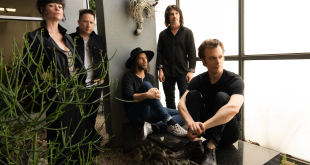Music and language share a profound connection, weaving through the fabric of human expression and communication. In education, this intertwining of melody and words in songwriting presents a unique opportunity to enhance students’ creative writing skills. This article delves into how the art of songwriting not only enriches the soul but also sharpens the mind, particularly in the domain of creative writing.
The Basics of Songwriting
Songwriting is an art form that combines lyrics, melody, and rhythm to create a musical narrative. It shares several similarities with creative writing, such as storytelling, emotional expression, and poetic devices. Understanding these key components can unlock new avenues for students to explore and express their creativity.
Enhancing Vocabulary and Language Skills
How Songwriting Encourages a Rich Use of Language
Songwriting is a fertile ground for linguistic exploration and creativity, much like the academic challenge students face when they opt to pay for assignment assistance in their academic pursuits. Just as these services aim to provide well-crafted and articulate content, songwriting requires a similar mastery of language. Unlike conventional writing, song lyrics often demand a denser, more expressive use of language due to their brevity and the need to convey meaning and emotion within a limited space.
This parallels students’ challenges in academic writing, where conveying complex ideas clearly and concisely is vital. Engaging in songwriting pushes students to choose words that are precise and evocative, mirroring the skills needed for effective academic writing. This practice leads to a richer, more varied use of language, offering students a more thoughtful and creative approach to vocabulary as they learn to express complex ideas and emotions succinctly and impactfully.
The Role of Metaphors, Similes, and Imagery in Songwriting and Creative Writing
Metaphors, similes, and imagery are the backbone of songwriting and creative writing, providing depth and color to the text. These devices are crucial for creating vivid pictures and emotional resonance in songwriting. For example, metaphors can transform a simple lyric into a multi-layered expression, allowing listeners to find personal connections to the song. Similes add clarity and relatability, while imagery can transport listeners to different times or places. These elements enrich the song’s narrative and enhance the listener’s engagement and emotional response.
Case Studies or Examples of Songs with Powerful Language Use
Numerous songs serve as excellent examples of powerful language use. Bob Dylan’s “Like a Rolling Stone” is a masterclass in narrative and metaphor, while Leonard Cohen’s “Hallelujah” uses biblical imagery to convey complex emotions. Taylor Swift’s “All Too Well” is a modern example of using detailed, narrative imagery to tell a deeply personal story. These songs exemplify how effective language use in songwriting can evoke strong emotions and create lasting impressions.
Developing Narrative and Storytelling Skills
Songwriting as a Tool for Storytelling
Songwriting is an effective tool for storytelling, offering a unique way to convey narratives. Unlike traditional storytelling methods, songs encapsulate stories concisely, often focusing on the emotional essence of the narrative. This form of storytelling requires focusing on critical moments, emotions, and images, thus teaching students the art of concise and impactful narrative construction.
Techniques for Creating Narratives within Songs
Creating narratives within songs involves several techniques. One approach is to focus on a central theme or message and build the story around it. A robust, engaging opening line can set the tone and draw listeners into the story. Using verses to advance the narrative, choruses to reinforce the central theme or message, and bridges to introduce a different perspective or twist are all effective narrative techniques in songwriting.
Comparing Song Narratives to Creative Writing Structures
Song narratives share many similarities with traditional creative writing structures but are condensed into a more compact form. Like a short story, a song has a beginning, middle, and end. The verses often act as the story’s exposition and rising action, the chorus can serve as the climax or central message, and the bridge or final verse provides the resolution or conclusion. This structural similarity allows students to apply narrative skills learned in songwriting to broader creative writing projects, enhancing their overall storytelling abilities.
Emotional Expression and Persuasive Writing
The Emotional Impact of Songs
Songs have a profound ability to evoke emotions, which stems from their unique combination of melody, rhythm, and words. The emotional impact of songs can range from joy to sadness, anger to love, often resonating deeply with listeners. This connection is achieved through the songwriter’s skill in capturing and expressing emotions personally and universally.
How Songwriting Teaches Students to Convey Emotions Effectively in Writing
Songwriting can be an excellent tool for teaching students how to convey emotions in their writing effectively. Crafting song lyrics requires understanding how to express feelings in a way others can relate. This involves choosing words, metaphors, and images to convey the desired emotional tone. Students learn to tap into their experiences and emotions, translating them into lyrics that can move and connect with an audience.
Using Songwriting to Develop Persuasive Writing Skills
Songwriting also has the potential to enhance students’ persuasive writing skills. Much like a persuasive essay, a compelling song aims to convince the listener about a particular viewpoint or message. By composing songs with a persuasive element, students learn to use rhetoric, emotional appeal, and compelling arguments in their writing. This skill is transferable to other forms of writing where persuasion is vital, such as essays, speeches, or opinion pieces.
The Process of Revision and Refinement
The Importance of Editing and Revising in Songwriting
Revision is a critical part of the songwriting process, akin to the editing process in essay writing. Just as an essay writer meticulously refines and polish their prose, songwriting involves refining lyrics, tweaking melodies, and sometimes rethinking entire song sections. This rigorous process ensures that the final musical product is cohesive, polished, and effectively conveys the intended message and emotion. It teaches students the invaluable skill of reviewing and improving their work. This principle is essential in all forms of writing, whether composing a song or crafting an academic essay. Understanding and practicing this process in songwriting can significantly enhance a student’s ability to edit and improve their written work across various formats.
How the Revision Process in Songwriting Parallels That in Creative Writing
The revision process in songwriting mirrors that in creative writing. Just as a songwriter might revise their lyrics to improve clarity or emotional impact, writers revise their prose for better flow, coherence, and effectiveness. Both processes involve critical evaluation, experimentation, and the willingness to make changes for improvement.
Encouraging a Culture of Continuous Improvement in Writing
Integrating songwriting into the curriculum can foster a culture of continuous improvement in writing. Students learn that writing, much like songwriting, is a process that involves drafting, feedback, and revision. This mindset encourages students to view writing as a craft that can constantly be refined and enhanced.
Songwriting Exercises for Creative Writing Enhancement
Practical Exercises to Integrate Songwriting into the Creative Writing Curriculum
To integrate songwriting into creative writing, educators can introduce exercises such as writing a song based on a poem, converting narrative stories into song lyrics, or composing music to express the theme of a novel or character.
Collaborative Songwriting Activities to Foster Teamwork and Idea-Sharing
Collaborative songwriting activities can be a great way to foster teamwork and idea-sharing among students. Group songwriting projects, where students write and compose together, can encourage diverse perspectives and ideas, enhancing creativity and collaboration skills.
Using Songwriting Prompts to Inspire Creative Writing Projects
Songwriting prompts can be a valuable tool to inspire creative writing projects. Prompts such as writing a song from the perspective of a historical figure, creating lyrics based on a current event, or composing a piece of music that tells a story can stimulate imagination and creativity in students’ writing. These exercises enhance their songwriting skills and enrich their overall creative writing abilities.
Conclusion
Incorporating songwriting into educational practices offers a harmonious blend of creativity and learning. The skills gained through this musical journey – from enhanced language abilities to improved narrative construction – significantly contribute to a student’s creative writing prowess. As educators and students, embracing songwriting as a creative and educational tool can lead to a more engaging, expressive, and effective learning experience. Through songwriting, we can teach our students to write and sing their stories with their words.
 Music Existence Because of Music, We Exist
Music Existence Because of Music, We Exist




